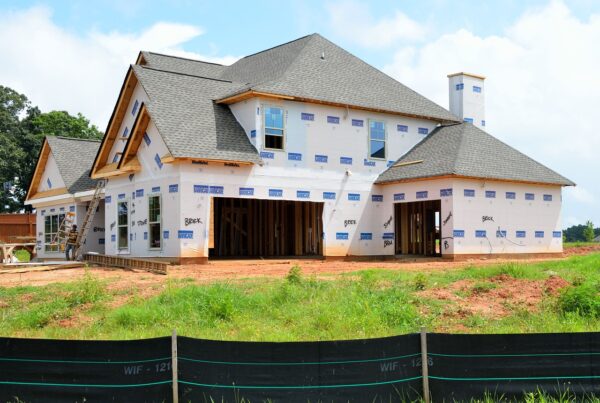From mandatory valet trash fees to punitive charges for minor violations, junk fees are becoming a rampant issue in the rental market, leaving many tenants blindsided and cutting into units that were designed to stay affordable.
Heather Way is the director of the Housing Policy Clinic at the University of Texas School of Law, and she’s one of the authors of a new report, “Combating Junk Fees in Texas Rental Housing: A Pathway to Fairer and More Transparent Leasing Practices.”
She joined the Texas Standard to talk about the findings. Listen to the interview above or read the transcript below.
This transcript has been edited lightly for clarity:
Texas Standard: Tell us more about what actually constitutes a junk fee in the rental housing market. Is this something that has some legal precision, or are you talking about something more broadly?
Heather Way: More broadly. There are lots of different types of junk fees in the rental housing market, but basically these are excessive and often hidden charges that are tacked onto the rent and one of the most common types of junk fees are charges for mandatory services. These are services that tenants don’t choose to receive, and they often don’t find out about them until they get their lease.
I mentioned trash fees – valet trash fees. What others come to mind?
Yeah valet trash fees are definitely the most ubiquitous. Like everyone I see I ask them “what fees do you have?” And valet trash fees always comes up. But we came across in our research just all sorts of additional, really highly questionable fees that tenants are having to pay: administrative fees or lifestyle fees, air filter replacement fees.
Our client, BASTA, which is a tenant organizing group, shared with us an example of a fire hydrant fee, a boiler management fee. I mean, the list goes on and on. It gets quite ridiculous.
» GET MORE NEWS FROM AROUND THE STATE: Sign up for Texas Standard’s weekly newsletters
Well, I don’t know. I know that many renters find themselves surprised by these charges, but haven’t they signed a lease? I mean, aren’t there limits on what you can add to these list of mandatory charges, or is that already baked into the lease?
Well, so part of the problem is that tenants don’t know about these fees until they go sign the lease. So it prevents comparison shopping. And often tenants have to plop down $100 or more in application fees and processing fees and hold fees.
So after they put in the hundreds of units to hold a unit, then they go and sign their lease and they find out, “oh gosh, I’m on the hook not only for this rent, but for hundreds of potentially more in additional fees. So that’s one of the biggest problems with these, is they’re not just being disclosed upfront in the listing price for these units.
I see. One of the more important aspects of these fees – it’s not just that they’re an inconvenience or that they drive up out-of-pocket costs more broadly – but a lot of these fees affect people who need affordable housing and we’ve talked a lot on this program about the lack of it. And then once you add in these extra fees, the landlord’s not supposed to be allowed to raise the base rent of course, and I’m wondering if, in a way, this is a way of getting around it.
Well, we actually came across examples of where landlords are actually increasing the fees mid-lease also. So it’s not just about the fees not being disclosed upfront, but we’re seeing tenants that are getting hit with these additional fees actually mid-lease, which is sort of quite shocking.It was quite shocking to hear about.
But absolutely. I mean, this is an issue that strikes at the heart of our affordable housing crisis and is driving up the price that tenants have to pay to rent an apartment or to rent a house.
So even where there have been efforts by the city to try to increase the numbers of units that might be affordable, nonetheless, this is a way for landlords to be a part of that affordable housing initiative, and at the same time, try to increase what they’re taking in.
Yeah, we came across these fees even in government subsidized housing programs in Austin. So there’s one property in Hyde Park, for example, the City of Austin actually owns that through a public-private partnership. And there are rent restrictions in place.
But we found that despite those rent restrictions, that landlord is charging an array of fees, including administrative fees, mandatory cable fees and pest control fees, that can be a workaround those rent restrictions.
» RELATED: Austin helped buy cheap apartments with the intent of keeping prices low. Instead, rents went up.
Well, that goes to another question of, well, how do you answer property owners and managers who say, “look, these are necessary. This is the price of property management.”
The cost of managing property should be included in the rent. just simply said. If there’s a cost that needs to be charged the tenants, then include it in the rent. It doesn’t need to go into these hidden fees that are not fair to tenants.
So what’s the solution? And is anyone getting this right?
There are a lot of opportunities for reform, and there are some examples of states that have started to engage in reforms. This is an issue around the country, but front and center there needs to be disclosure requirements.
The Biden administration has actually issued regulations that are pending that would require the upfront disclosure of these fees. That would be a big step in the right direction. But there also need to be action in terms of actually just banning specific types of fees and restricting movements, and specifically prohibiting things like mid-lease changes to fees.
In the meantime, what can tenants do to protect themselves from these hidden charges?
Yeah, I think it’s just really important when going to rent an apartment, of asking the landlord to put in writing upfront – before you put down money for an application – for them to spell out in writing what are all the other fees that you’re going to find when you go sign your lease, and so that you can do that comparison shopping.
It’s basically gets down to full disclosure and awareness on the part of the lessee, I suppose.
Yes, absolutely. But then at the end of the day, even with that transparency, they’re still going to be stuck with these fees, which are driving up the cost of housing.














